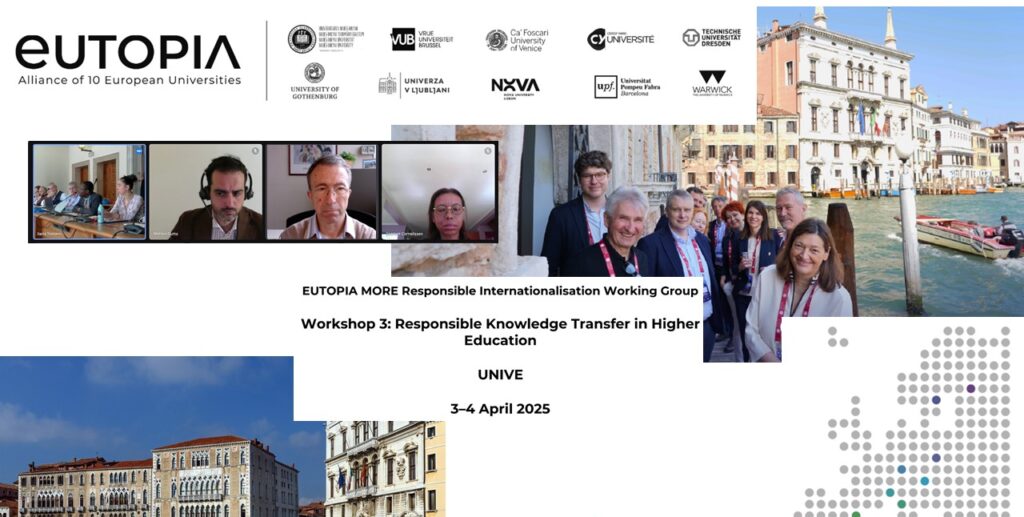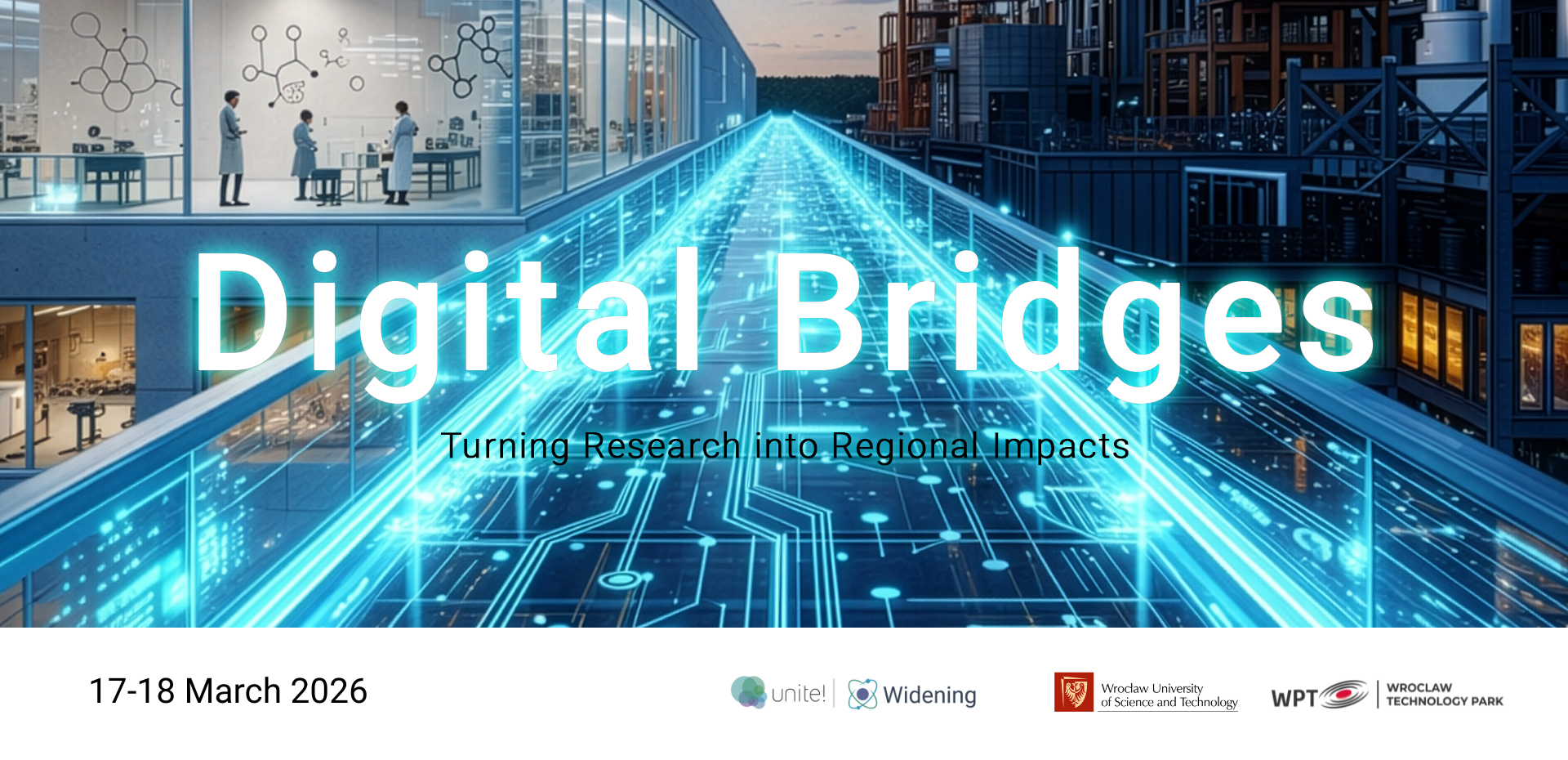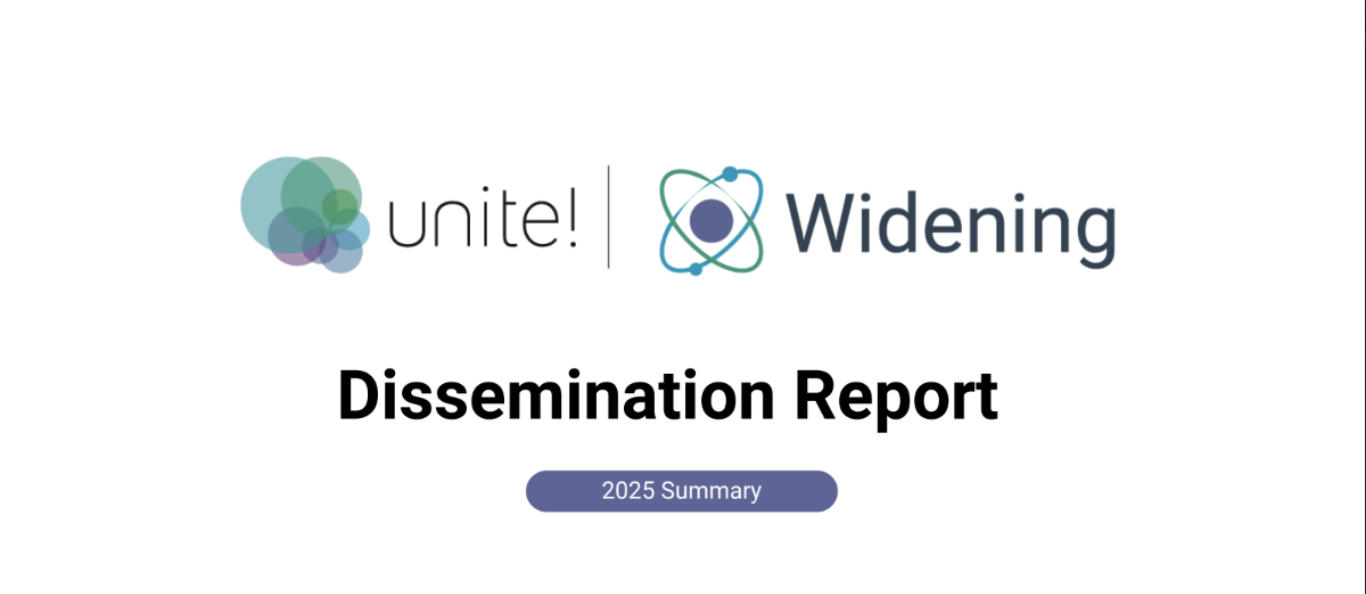On April 3rd, 2025, experts from Unite! participated in Workshop 3: Responsible Knowledge Transfer in Higher Education, held in collaboration with the EUTOPIA Alliance.
Experts from Unite! have joined forces with the University alliance EUTOPIA to discuss a macro-level perspective on European and Global policies and approaches to Knowledge and Technology Transfer and to consider the interaction between policy and practice. The workshop provided a valuable platform to examine how policy and practice intersect, and to reflect on the responsibilities of higher education institutions in shaping ethical, effective, and sustainable knowledge exchange.
This was the third workshop in the series.
Workshop 1 covered a broader range of topics in RI, including Fair Partnerships, Academic Freedom and HEI Collaborations in Regions of Geopolitical Conflict; and RI in Practice.
Workshop 2 focused more specifically on the priority area of Responsible Research and Research Security.
Each event has involved both internal stakeholders from EUTOPIA institutions and external stakeholders with expertise in the topics under discussion. In the first two workshops, these have included EUTOPIA academics, wider EUIs, the Guild of European Research-Intensive Universities, U15 [Canada], STINT [Sweden], and the European Commission.”
To this respect, prof. Josep Bordonau (Coordinator of the UNITE! University Expert Community; and Associate Professor in Power Electronics, UPC BarcelonaTECH) participated on behalf of Unite! in the hybrid workshop hosted by UNIVE (Venice) Ca’ Foscari University campus for EUTOPIA MORE Responsible Internationalisation. Other speakers included Dr Federica Baldan, Legal and Policy Officer, DG Research and Innovation, European Commission, Professor Scarlett Cornelissen, Director of SU-Japan Centre; Professor of African Studies, Political Sciences, Martin Eriksson, Network Manager, United Nations Sustainable Development Solutions Network (SDSN) Northern Europe, Dr Samuel Partey, Head of Unit and Regional Advisor for Science, UNESCO Regional Bureau for Science and Culture in Europe and Dr Ioannis Sagias, Deputy Head of Unit for Valorisation Policies and Intellectural Property Rights, DGS Innovation Prosperity and International Cooperation, European Commission.
The key questions addressed by the Workshop:
- What are the main operational, security, and ethical challenges that Knowledge and Technology Transfer Officers face in international collaborations?
- What role does ethics play in Knowledge and Technology Transfer?
- How can universities design partnership frameworks that ensure equitable and sustainable knowledge and technology transfer across different regions?
- What mechanisms could encourage greater transparency and accountability in partnerships between universities, industry, and the public sector?
- How can knowledge transfer be integrated into HEIs’ broader commitment to responsible internationalisation? And what could be the role of European University Alliances in the process?
This third Workshop built on two previous events which explored different aspects of the broad topic of Responsible Internationalisation, in which consistent interests emerged, including the following:
- The grey areas that offer scope for collective intervention, where staff have freedom to make decisions beyond the red lines of compliance,
- The perspectives of Global South and Global North, including scope for joint action that supports an equitable approach to our collaborations,
- The risk balance in managing RI on both sides, between action (overstepping) and inaction (negligence), allowing that both courses can have unintended consequences,
- The development of self-guided tools and structured guidelines to support responsible practice, including PGR, ECRs at the start of their careers, and professional services colleagues – including ways that take account of different professional disciplines and domains
To this respect, the Roundtable on models for International Cooperation introduced broader agendas for Knowledge Transfer, including its relevance to Responsible Internationalisation in different contexts. It surfaced some of the key problematics that invited organisations are seeking to tackle, as well it spotlighted work that is already taking place. Understanding these priorities and the actions that have followed should help all European Alliances to think about its scope for influence and impact.
More information:
EUTOPIA in Venice: Tackling Knowledge Transfer and Responsible Internationalisation


